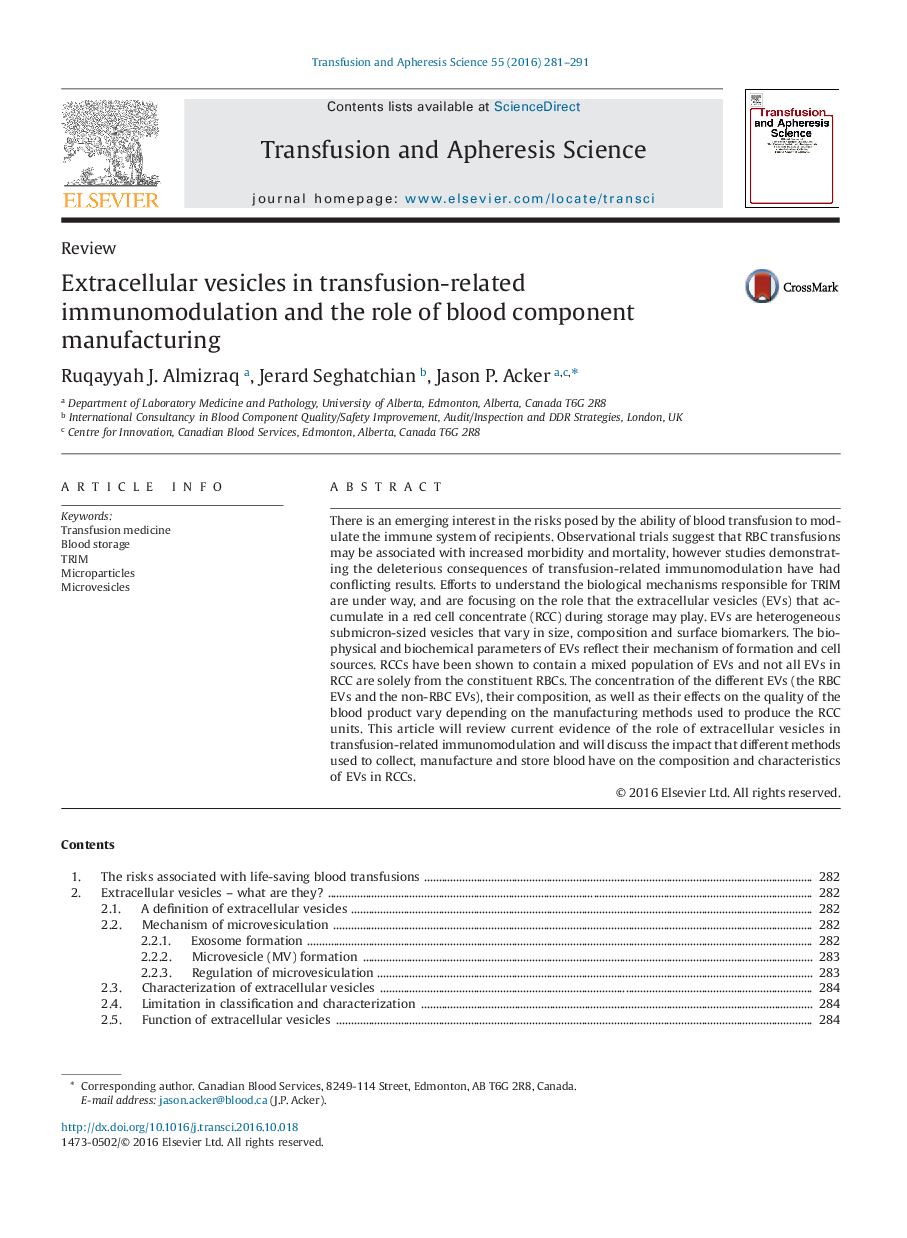| Article ID | Journal | Published Year | Pages | File Type |
|---|---|---|---|---|
| 5664678 | Transfusion and Apheresis Science | 2016 | 11 Pages |
There is an emerging interest in the risks posed by the ability of blood transfusion to modulate the immune system of recipients. Observational trials suggest that RBC transfusions may be associated with increased morbidity and mortality, however studies demonstrating the deleterious consequences of transfusion-related immunomodulation have had conflicting results. Efforts to understand the biological mechanisms responsible for TRIM are under way, and are focusing on the role that the extracellular vesicles (EVs) that accumulate in a red cell concentrate (RCC) during storage may play. EVs are heterogeneous submicron-sized vesicles that vary in size, composition and surface biomarkers. The biophysical and biochemical parameters of EVs reflect their mechanism of formation and cell sources. RCCs have been shown to contain a mixed population of EVs and not all EVs in RCC are solely from the constituent RBCs. The concentration of the different EVs (the RBC EVs and the non-RBC EVs), their composition, as well as their effects on the quality of the blood product vary depending on the manufacturing methods used to produce the RCC units. This article will review current evidence of the role of extracellular vesicles in transfusion-related immunomodulation and will discuss the impact that different methods used to collect, manufacture and store blood have on the composition and characteristics of EVs in RCCs.
